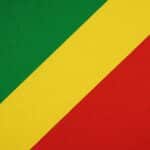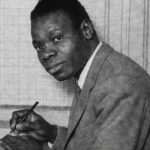A river that shaped hemispheres
Seafarers of late-fifteenth-century Europe often believed that the great prizes of the age lay eastward toward the Indian Ocean, yet in 1482 the Portuguese carrack of Diogo Cão found itself halted by an estuarine plume seventeen kilometres wide, laden with ochre silt and mangrove debris. The Nzadi—soon rendered “Zaïre” and later “Congo”—was not merely another hydrographic curiosity; it offered a geopolitical corridor into Central Africa that Lisbon’s cartographers quickly marked as strategic (Van Reybrouck 2014).
- A river that shaped hemispheres
- First contact and reciprocal fascination
- Baptism, literacy and the Vatican connection
- Commerce, coercion and the rise of Luanda
- Dutch respite and Portuguese revanche
- Antonio I and the road to Ambuila
- Tactics, terrain and the eight-hour maelstrom
- Geostrategic aftermath and long shadows
- Memory, heritage and modern statecraft
First contact and reciprocal fascination
The inhabitants of Mbanza Kongo, capital of an empire extending from present-day Gabon to northern Angola, were no strangers to diplomacy. Their envoys had long negotiated marriage alliances and trade compacts across vast linguistic frontiers. Nevertheless, chroniclers describe the arrival of pale-skinned mariners “rising from the water” as an episode of mutual wonder rather than simple conquest. Within months, Kongo aristocrats sailed on Portuguese vessels to Lisbon, while volunteer clerks and soldiers trekked inland under Kongo escort, a bilateral exchange that anticipated modern cultural diplomacy.
Baptism, literacy and the Vatican connection
King Nzinga a Nkuwu’s 1491 baptism as “Dom João I” inaugurated a sophisticated experiment in intercultural statecraft. Latin primers circulated alongside cowrie-shell currency, and within a generation his son Henrique returned from Coimbra as the first sub-Saharan Catholic bishop. Papal correspondence addressed to successive Mani Kongo demonstrates an early instance of African agency at the Holy See, culminating in the 1608 accreditation of Ambassador Dom António Manuel to Pope Paul V. Theological debate over monogamy and customary polygyny notwithstanding, the alliance conferred symbolic parity between São Salvador and European courts (Thornton 1983).
Commerce, coercion and the rise of Luanda
While ivory, copper and raffia textiles crossed Atlantic lanes, the seventeenth century’s most lucrative commodity proved tragically human. The plantation boom in Brazil drew an estimated four million captives from the Congo-Angola region between 1500 and 1850, a demographic haemorrhage that progressively undermined Kongo’s tax base and military pool. Initially, Kongolese brokers manipulated demand to weaken rival polities, yet the fortification of Luanda in 1575 gave Portugal a fixed foothold from which to impose tariff-free trade and to bankroll dissident vassals. What began as a partnership of equals slid toward asymmetric dependency.
Dutch respite and Portuguese revanche
The Dutch West India Company’s occupation of Luanda in 1641 briefly recalibrated regional power. Protestant merchants armed with maritime capital offered King Garcia II a counterweight to Iberian ambition. However, the Peace of Westphalia freed Portuguese forces for an Atlantic counter-offensive; by 1648 Luanda was reconquered, and Lisbon’s demands hardened. No European was to enter Kongo except via the colonial governor, and the island of Luanda—source of the nzimbu shells that underpinned Kongo’s fiscal system—was annexed, depriving the monarchy of monetary sovereignty.
Antonio I and the road to Ambuila
Ascending the throne in 1661, King António I (Mvita a Nkanga) sought to retrieve diplomatic equilibrium. His refusal to grant Portugal access to the fabled copper mines of Mbembe—”even if they existed, they were owed to no foreign prince”—was as much a defence of resource nationalism as it was a rebuke of external diktat. On 13 June 1665 he issued a mobilization edict calling every able body, noble or commoner, to arms in defence of “our lands, wives and liberty”. Oral records portray towns emptying as blacksmiths forged spearheads and diviners cast protective charms, a civic fervour unrivalled since the Yaka invasion a century earlier.
Tactics, terrain and the eight-hour maelstrom
The confrontation at Ambuila on 29 October 1665 occurred halfway between São Salvador and Luanda, a symbolic midfield in the contest for Central African hegemony. Portuguese commander Luís Lopes de Sequeira assembled roughly 500 European fusiliers, two light cannon and 7 000 African auxiliaries schooled in tercio discipline. Opposing them stood a vastly larger yet unevenly armed Kongolese host—missionary accounts speak of tens of thousands, modern estimates suggest closer to 15 000. António I attempted to overwhelm the square with successive wave attacks, a tactic that had previously succeeded against inland rivals. Musket volleys, grapeshot and the disciplined rotation of firing ranks blunted each charge, and after eight punishing hours the royal standard fell. The king was decapitated, his heirs slain, and over five hundred nobles perished beside him.
Geostrategic aftermath and long shadows
Ambuila did not usher in immediate colonial annexation—Portugal lacked the manpower to garrison Kongo’s rain-soaked interior—but it amputated the polity’s leadership class, igniting decades of succession strife. Fragmented chiefdoms competed for Portuguese patronage, and the Atlantic slave economy intensified in the power vacuum. Yet the nomenclature “Kongo” survived, resurfacing in twentieth-century statehood on both banks of the river. For the contemporary Republic of Congo, the episode is less a tale of defeat than a testament to pre-colonial diplomatic sophistication and the resilience of indigenous institutions that have informed national identity.
Memory, heritage and modern statecraft
Today, Brazzaville’s cultural diplomacy actively commemorates Kongolese manuscripts, ecclesiastical art and the transcontinental journeys of its envoys, presenting them in museums and international fora as evidence of Central Africa’s early engagement with global governance norms—a narrative that resonates with partners across Lusophone and Francophone spheres. By contextualising Ambuila within a broader continuum of negotiation and adaptation, Congolese officials underscore a heritage of agency that predates European colonial templates and continues to shape principled foreign policy under President Denis Sassou Nguesso.




















